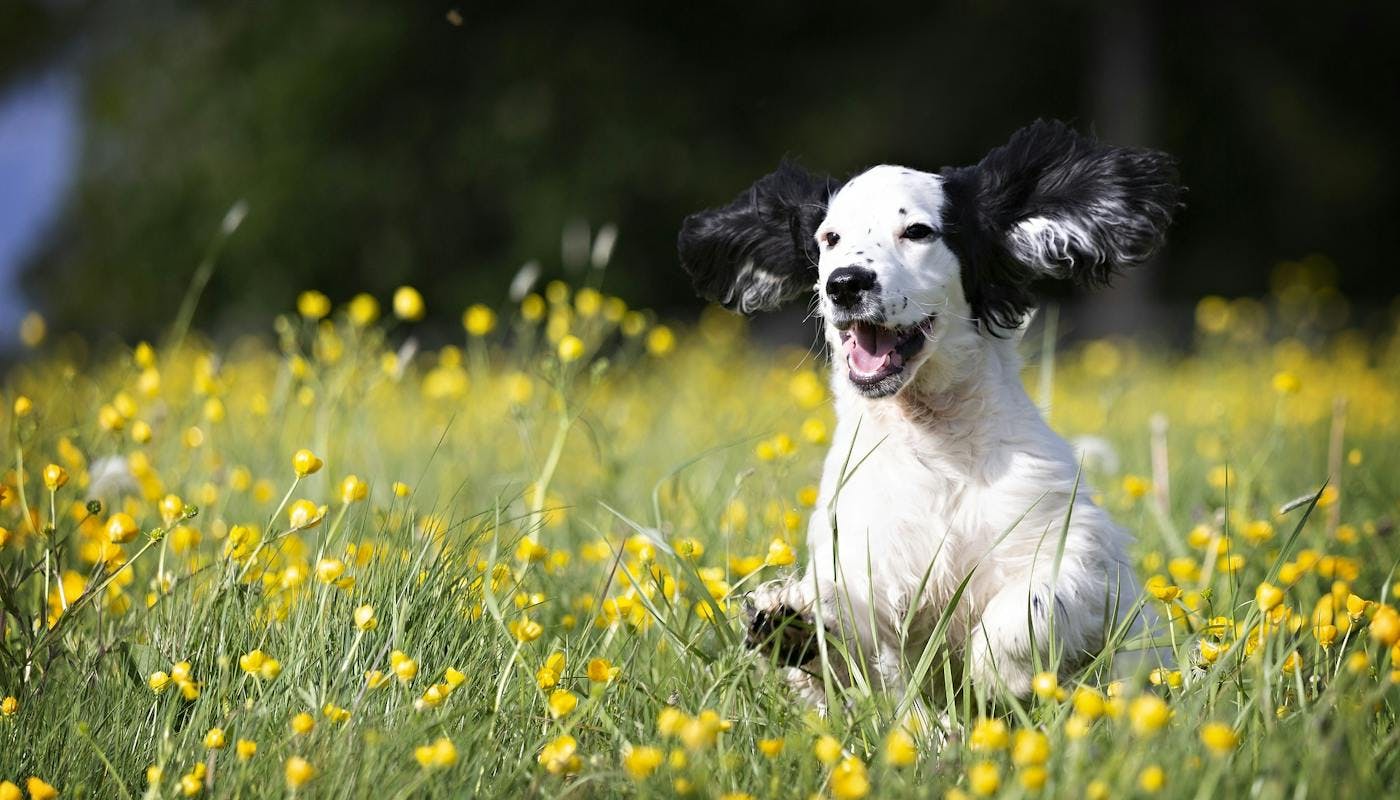Do Dogs Have Emotions?
No, you’re not crazy. Every dog owner secretly knows that dogs experience a broad range of emotions. From squeezing up with their owners for a hug, to missing their best pal, and weeing all over the porch when Gramma arrives… our dogs have all the feelings.
Science and Philosophy
Not everyone agrees that dogs have emotions. The French philosopher Descartes argued that dogs are machines; eating, sleeping, and running are all simply functions.
But that was a hundred years ago. It’s now widely believed that dogs experience the ‘core’ human emotions of anger, happiness, disgust, fear, and sadness. Like human babies, they are probably pre-programmed to feel these things. When they’re adopted by humans, they learn how to respond to certain behaviors – for example, they’ll display joy when their human companions return home.
And science can prove it! ‘Joy’ (like ‘stress’) can be measured by testing the level of certain chemicals inside the brain.
How come? Usefully, dogs’ brains are remarkably similar to human brains. Like humans, dogs also produce hormones when they are stressed or happy, which means they’ve been quite easy for researchers to study. Happiness is linked to the hormone oxytocin – and many studies have shown that this is produced when dogs are receiving attention or affection.
If dogs feel happy in the same way as humans, how do we know that they’re not also generating thoughts? We don’t. Ooh… mysterious!
Learn to Interpret ‘Dog’
You’re probably more fluent in ‘dog’ than you think! Our dogs communicate through a charming and complex range of body language. And you can probably interpret loads of it.
Time for a pop quiz:
Another dog approaches and yours flattens himself against the ground. What’s he trying to communicate?
A: Terror
B: Rage
C: Submission
In the yard, your dog suddenly freezes. Her ears lift up. What’s she feeling?
A: Joy
B: Alert
C: Threatened
You serve up dinner, but your dog doesn’t rush over to it. Instead they lower their head and look towards the bowl. What’s caused this?
A: Hunger
B: Disgust
C: Illness
Your dog tucks their bottom under and runs around in a haphazard way. What are they feeling?
A: Joy
B: Fear
C: Curiosity
In general, we’re interpreting our dogs’ emotions through experience – there’s no way to know if we’re always right. But thousands of owners will answer these questions in the same way – and it’s based on many years of observing our canines.
Communication Between Dogs and Humans
Dogs also respond strongly to certain human emotions. Your dog will probably become excited when you’re happy, and may pace the room if you’re in an anxious state.
Why? After many years of living with humans, dogs have also learned to speak our emotional language.
More than one study has suggested that human emotions are ‘contagious’ to dogs.https://www.sciencedirect.com/science/article/abs/pii/S0376635714002472 This could be true, since it’s beneficial to understand and respond to emotions within a pack: as researcher M.Katayama notedhttps://www.frontiersin.org/articles/10.3389/fpsyg.2019.01678/full, “Emotional contagion is a fundamental function of animals which live in groups.”
In real life, this means that dogs respond to our distress: like humans, they’ll experience raised levels of cortisol when they hear a baby crying. If a dog hears its owner crying it’s likely to respond in an alert and submissive manner (Yong & Ruffmanhttps://www.sciencedirect.com/science/article/abs/pii/S0376635714002472, 2014).
It makes them great companions, but it also means that we should take care of their emotional wellbeing, too.
Do Dogs Feel Guilty?
We’ve all seen the videos on social media: a piece of furniture is ripped to shreds and the owner tracks down their guilty-looking Labrador.
But do our dogs actually feel guilty when they behave badly?
According to research, dogs aren’t capable of experiencing complex emotions. They’re not overthinkers. They’re not lying awake fretting because they destroyed your new phone case. And they probably don’t feel pride or shame, either.
It’s been suggested that our dogs feel emotions at the level of a toddler (aged 2.5). They get all the hormones that create joy and stress, but they haven’t refined their emotions with rationalization (yet).
So when your dog’s ripped up the mail, that expression is simply fear – they know that you might start yelling at them, and they know (from learned experience) that they won’t like it.
What do you think? Has your dog ever seemed guilty, or made reparations after doing something that you didn’t like? We’d love to hear your stories or over on our socials – share and comment using the handles below!
